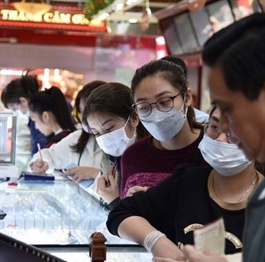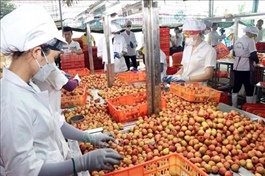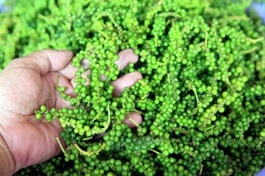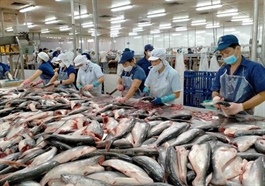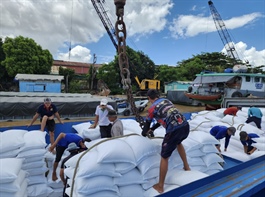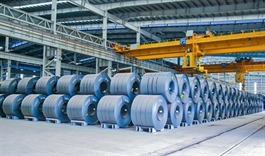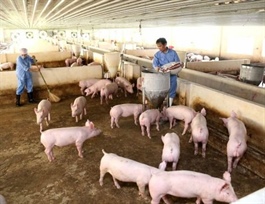Rice export management needs to achieve dual goals
Rice export management needs to achieve dual goals
Ensuring food security should be the top priority for rice exporters, along with promoting sustainable rice production and making good use of export outlets which Việt Nam has signed free trade agreements (FTAs) with, the Ministry of Industry and Trade (MoIT) has said.
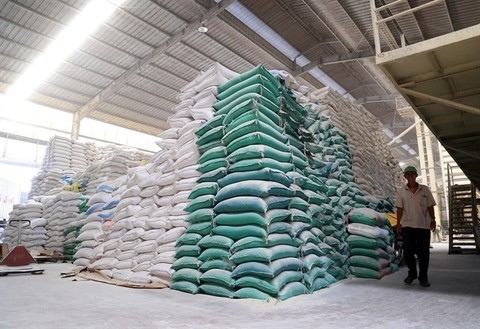
A rice warehouse of Dương Vũ Co in the southern province of Long An. — VNA/VNS Photo Hồng Đạt |
The MoIT said it is about to complete a legal corridor for rice exports, creating a transparent, fair and favourable environment for domestic rice traders and exporters.
It continues to implement trade promotion activities to advertise the Vietnamese-branded rice products and take full advantage of the FTAs to seek new export markets and improve competitiveness for Việt Nam's rice industry.
It would also direct Vietnamese Trade Offices abroad and Trade Promotion Department to support rice exporters in establishing direct distribution channels and deploying activities to promote Vietnamese rice products, especially high-quality ones to penetrate demanding and niche markets.
At the same time, the ministry would ask the Vietnam Food Association (VFA) and rice exporters to improve their capacity to negotiate, sign and implement export contracts, update the rice market information and provide enterprises with timely support in handling problems.
Over the past four months, Việt Nam exported 3.23 million tonnes of rice, worth US$2.1 billion, up 12 per cent in volume and 37 per cent in value, statistics from the General Department of Customs revealed.
The surge in value was attributed to a 22.2 per cent rise in exported rice, priced at US$644 per tonne since the beginning of this year.
Among the major export markets in the period were the Philippines, Indonesia and Malaysia.
With positive results recorded so far, Việt Nam could exceed its target of 7.6 million tonnes in rice export volume set for 2024, according to the Vietnam Food Association.
Lê Thanh Hòa, deputy director of the MARD’s Department of Quality, Processing and Market Development, said due to the El Nino phenomenon and the impact of climate change, the global rice output in the 2023-24 crop was forecast to drop to nearly 518 million tonnes, while the consumption demand was 525 million tonnes, which means the world would face a shortage of about seven million tonnes of the grain this year.
This was a good opportunity for rice exporters, including Việt Nam, Hòa said during a conference in the Mekong Delta city of Cần Thơ in April.
He added that the country could supply 8.13 million tonnes to the world this year and still ensure domestic food security.
However, he said that Việt Nam would still face many challenges in rice exports this year, including the dependence on certain traditional markets.
Deputy Minister of Industry and Trade Phan Thị Thắng stressed the need to foster coordination between businesses and rice farmers to ensure the stable supply and quality of rice, affirming the trademark of Vietnamese rice in the world market.
The official at the event also underlined the need for the active negotiation and signing of agreements on plant quarantine and technical regulations on paddy and rice quality to create favourable conditions for Vietnamese rice exporting enterprises.








